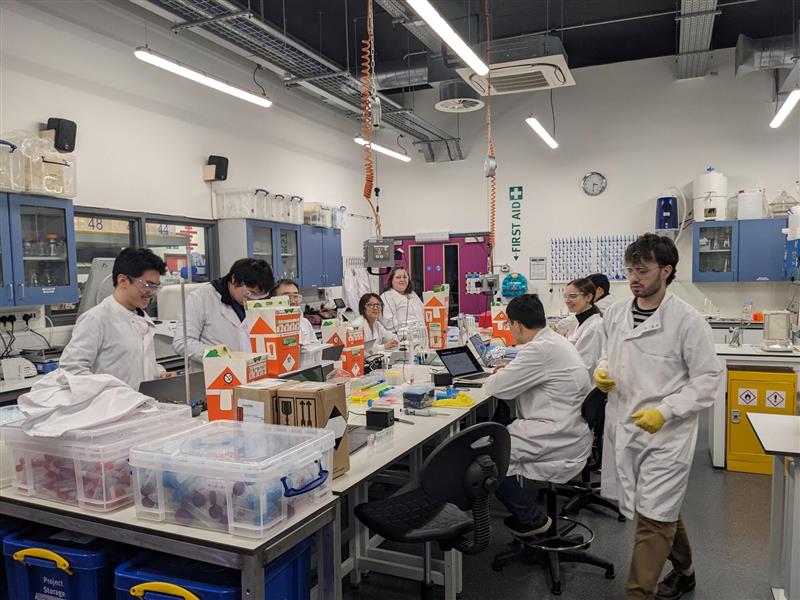FutureLab Observatory
Students joining the EPSRC CDT in Chemical Biology: Empowering UK BioTech Innovation will benefit from our new FutureLab Observatory. Through this programme, with elements throughout all CDT years, students will gain experience of prototyping and industry 4.0 training in Imperial College’s Advanced Hackspace; will take part in Imperial's industry-led innovation workshops; undertake a high-throughput Drug Screening Programme run in our new automated facility; and much more. FutureLab Observatory comprises the following exciting components:
FutureLab
 FutureLab comprises of hands-on micro-courses (1-3 days each), introducing technologies spanning the physical/mathematical-life science and human-machine interfaces along with industry 4.0 approaches, e.g. rapid prototyping, AI / Machine Learning and biohacking.
FutureLab comprises of hands-on micro-courses (1-3 days each), introducing technologies spanning the physical/mathematical-life science and human-machine interfaces along with industry 4.0 approaches, e.g. rapid prototyping, AI / Machine Learning and biohacking.
The FutureLab enables student teams, to undertake early-stage concept validation of a Strategic Partner challenge linked to Lab of the Future concepts.
Coding Club
Using a gamification approach, once a month, teams established during the FutureLab will be sent a dataset and asked to apply coding approaches learnt during FutureLab.
Drug Screening Programme
Our brand new Drug Screening Programme will provide our students with hands on experience of the designing and implementing of a high-throughput miniaturised drug screening assay and processing of resultant data in the new Imperial-LMS Drug Discovery Hub.
FutureLab Café debates
Covering the impact, sustainability and ethics of Lab of the Future platforms, and delivered in partnership with industry experts, these workshops provide our students with the opportunity to relate these important concepts to their own research projects.
Biz Catalyst and Industry Innovation Workshops
Biz Catalyst will prepare students for the environments arising from the collision between the life sciences and Lab of the Future paradigms. This will include the effect of technology changes, building adaptable organisations and maximising data value. The course is complemented by Industry Innovation Workshops, site visits and sector specific Research and Development case studies.
Praise for Biz Catalyst
The BizCat session today with the panel of IP lawyers was an absolute highlight of the course so far. I know a lot of people feel the same. Having the opportunity to directly ask questions to a range of different experiences/backgrounds was very engaging and informative. I'm not sure where else we'd ever be given an opportunity quite like that. It also felt very applicable having Archie [SiftrBio] and Catherine [IP Strategy Officer, Imperial], who could give us advice within the context of Imperial. Overall the experience was hugely interesting, and I really enjoyed it.
Date last reviewed: 17 December 2025
Date last updated: 17 March 2025



